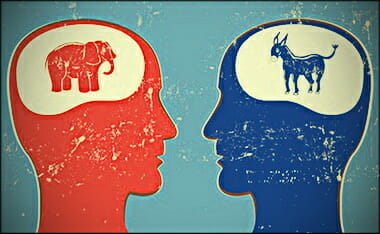- Attkisson shares that, “Almost all of the reported coronavirus deaths in the U.S. happened in long-term care facilities in Washington State. And almost all of those occurred at the same facility.” (GATEWAY PUNDIT)
ALSO:
- Democrats twice as likely as Republicans to call coronavirus imminent threat: poll
- Poll: Republicans Twice as Likely as Democrats to View Media Coverage of Coronavirus as Exaggerated
- Over Twice as Many Democrats as Republicans Approve of Mitt Romney: Poll
RED STATE has an excellent short article of which I clip most from:
…Journalist Sheryl Atkinson has put together information about the ages and underlying health conditions of the victims and the locations of their deaths.
The most noteworthy fact is that 37 of these deaths occurred in the state of Washington and “25 of the Washington deaths occurred at the Life Care Center nursing facility in Kirkland, where a serious outbreak occurred.” The ages of those who died is not available, but generally, healthy people don’t wind up in nursing homes.
The ages of the other victims in Washington state and the conditions of their health are known and are included in the conclusions below.
Of the remaining eleven, there were four in California, two in Florida and one each in New Jersey, South Dakota, Georgia, Kansas and Colorado.
- The youngest victim was in his 40s and had underlying health issues.
- Four were in their 60s, and all had underlying medical conditions.
- Seven were in their 70s. Five either had underlying health issues or were in assisted living facilities. The other two were a couple who had just returned from overseas.
- Six were in their 80s and either had medical conditions or were in assisted living facilities.
- Three were in their 90s and were in assisted living facilities.
- One was listed only as “elderly” and in an assisted living facility.
- The only people on this list where an underlying condition is not specified had been traveling overseas where they likely contracted the virus.
- Everyone else had health problem to begin with or was in a nursing home or other type of assisted living facility.
Atkinson’s full article can be viewed HERE.
Before posting, New York just announced the state’s first coronavirus death. A woman, 82, with emphysema had been admitted to a Brooklyn hospital on March 3 and officials say she contracted the virus inside the facility.
I’m not sure if this woman had been a smoker, but it is said that the high rate of smoking in China may have increased the number of deaths. According to Fortune Magazine, “the country’s sky-high smoking rate among men” may add to the “severity of symptoms and the number of coronavirus deaths in China.”…













